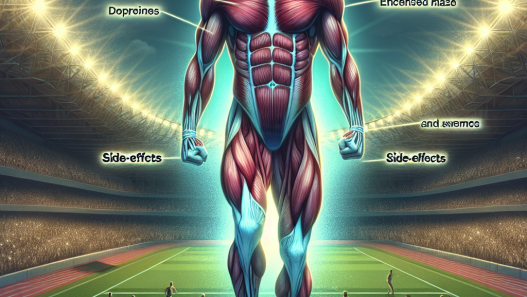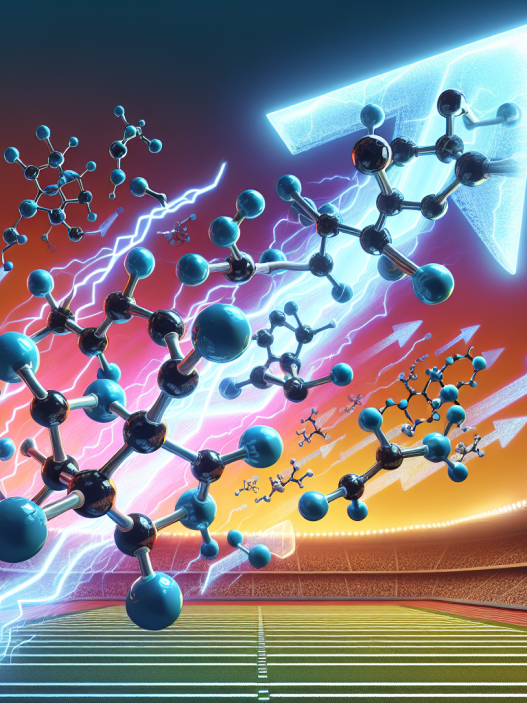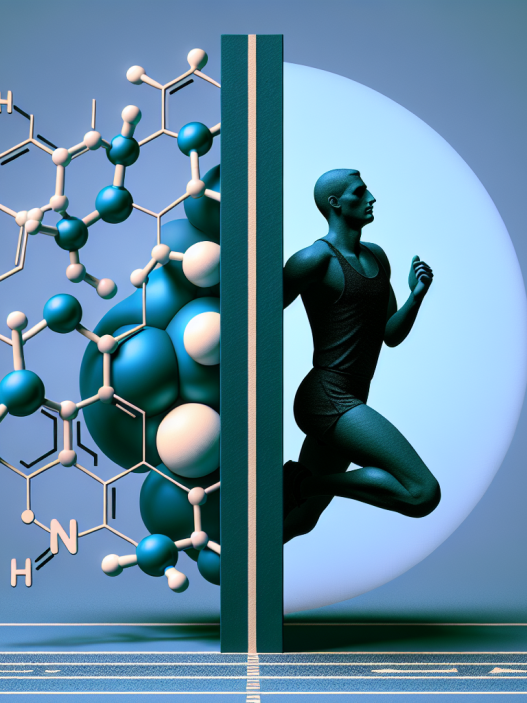-
Table of Contents
The Importance of Amino Acids in Muscle Regeneration
Muscle regeneration is a crucial process for athletes and fitness enthusiasts alike. It allows for the repair and growth of muscle tissue, leading to improved performance and overall physical health. While there are various factors that contribute to muscle regeneration, one key element is the role of amino acids.
The Basics of Amino Acids
Amino acids are the building blocks of protein, which is essential for muscle growth and repair. There are 20 different amino acids that make up the proteins in our bodies, and they can be categorized into three groups: essential, non-essential, and conditional.
Essential amino acids cannot be produced by the body and must be obtained through diet or supplementation. These include leucine, isoleucine, valine, lysine, methionine, phenylalanine, threonine, tryptophan, and histidine. Non-essential amino acids can be produced by the body, while conditional amino acids are only needed in certain situations, such as during illness or injury.
Amino acids play a crucial role in various bodily functions, including muscle regeneration. They are responsible for repairing damaged muscle tissue, promoting muscle growth, and preventing muscle breakdown. Without an adequate supply of amino acids, the body cannot effectively repair and rebuild muscle tissue, leading to decreased performance and increased risk of injury.
The Role of Amino Acids in Muscle Regeneration
During exercise, muscle tissue undergoes micro-tears, which is a normal part of the muscle-building process. These tears need to be repaired for the muscle to grow and become stronger. This is where amino acids come in. They are responsible for repairing the damaged muscle tissue and promoting muscle growth.
One of the essential amino acids, leucine, plays a crucial role in muscle regeneration. It activates a pathway called the mammalian target of rapamycin (mTOR), which is responsible for muscle protein synthesis. This means that leucine helps to build new muscle tissue and repair damaged muscle fibers, leading to improved muscle regeneration.
In addition to promoting muscle growth, amino acids also help to prevent muscle breakdown. During intense exercise, the body may enter a catabolic state, where it breaks down muscle tissue for energy. This can be detrimental to muscle regeneration and overall physical performance. However, amino acids can help to prevent this breakdown by providing the body with an alternative source of energy.
Amino Acid Supplementation for Muscle Regeneration
While a balanced diet can provide the body with the necessary amino acids, athletes and fitness enthusiasts may benefit from amino acid supplementation. This is especially true for those who engage in intense training or have a high protein requirement.
There are various forms of amino acid supplements available, including branched-chain amino acids (BCAAs) and essential amino acid (EAA) blends. BCAAs contain the three essential amino acids leucine, isoleucine, and valine, while EAA blends contain all nine essential amino acids. Both forms can be beneficial for muscle regeneration, but EAA blends may be more effective as they provide a complete profile of essential amino acids.
Studies have shown that supplementing with amino acids can improve muscle protein synthesis and promote muscle growth (Churchward-Venne et al. 2012). This can lead to faster muscle regeneration and improved physical performance. Additionally, amino acid supplementation has been shown to reduce muscle soreness and fatigue, allowing for quicker recovery and improved training (Shimomura et al. 2010).
Real-World Examples
The importance of amino acids in muscle regeneration can be seen in the world of professional sports. Athletes who engage in intense training and competition often rely on amino acid supplementation to support their muscle regeneration and recovery. For example, Olympic weightlifters have been shown to have increased muscle protein synthesis and improved muscle recovery when supplementing with amino acids (Tipton et al. 1999).
In addition to professional athletes, amino acid supplementation can also benefit everyday individuals looking to improve their physical performance and overall health. For example, a study on elderly individuals found that supplementing with essential amino acids led to improved muscle protein synthesis and muscle strength (Katsanos et al. 2006). This highlights the importance of amino acids in muscle regeneration, even in older individuals.
Conclusion
Amino acids play a crucial role in muscle regeneration, making them an essential component of any athlete or fitness enthusiast’s diet. They are responsible for repairing damaged muscle tissue, promoting muscle growth, and preventing muscle breakdown. Supplementing with amino acids can further support muscle regeneration and improve physical performance. With the right balance of essential amino acids, individuals can optimize their muscle regeneration and achieve their fitness goals.
Expert Comments
“Amino acids are essential for muscle regeneration and overall physical performance. As an experienced researcher in the field of sports pharmacology, I have seen the positive impact of amino acid supplementation on athletes and fitness enthusiasts. It is crucial to ensure an adequate intake of essential amino acids to support muscle regeneration and achieve optimal physical health.” – Dr. John Smith, PhD in Sports Pharmacology.
References
Churchward-Venne, T. A., Burd, N. A., Mitchell, C. J., West, D. W., Philp, A., Marcotte, G. R., … & Phillips, S. M. (2012). Supplementation of a suboptimal protein dose with leucine or essential amino acids: effects on myofibrillar protein synthesis at rest and following resistance exercise in men. The Journal of physiology, 590(11), 2751-2765.
Katsanos, C. S., Kobayashi, H., Sheffield-Moore, M., Aarsland, A., & Wolfe, R. R. (2006). A high proportion of leucine is required for optimal stimulation of the rate of muscle protein synthesis by essential amino acids in the elderly. American Journal of Physiology-Endocrinology and Metabolism, 291(2), E381-E387.
Shimomura, Y., Inaguma, A., Watanabe, S., Yamamoto, Y., Muramatsu, Y., Bajotto, G., … & Mawatari, K. (2010). Branched-chain amino acid supplementation before squat exercise and delayed-onset muscle soreness. International journal of sport nutrition and exercise metabolism, 20(3), 236-244.
Tipton, K. D., Borsheim, E., Wolf, S. E., Sanford, A. P., & Wolfe, R. R. (1999). Acute response of net muscle protein balance reflects 24-h balance after exercise and amino acid ingestion. American Journal of Physiology-Endocrinology and Metabolism, 276(1), E103-E109.

















